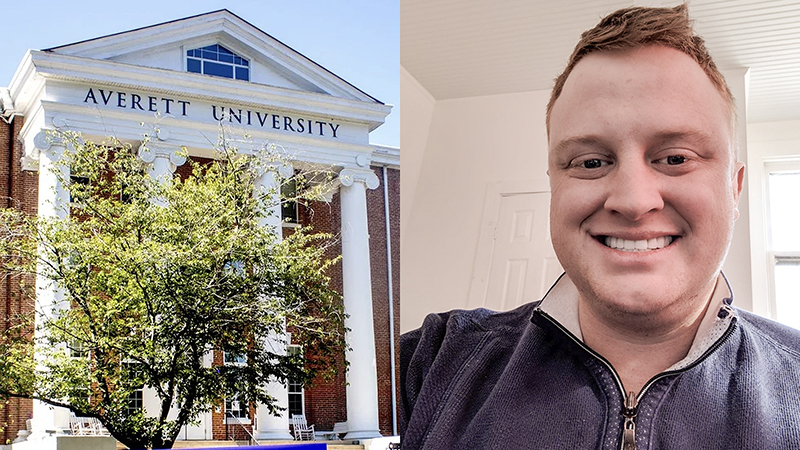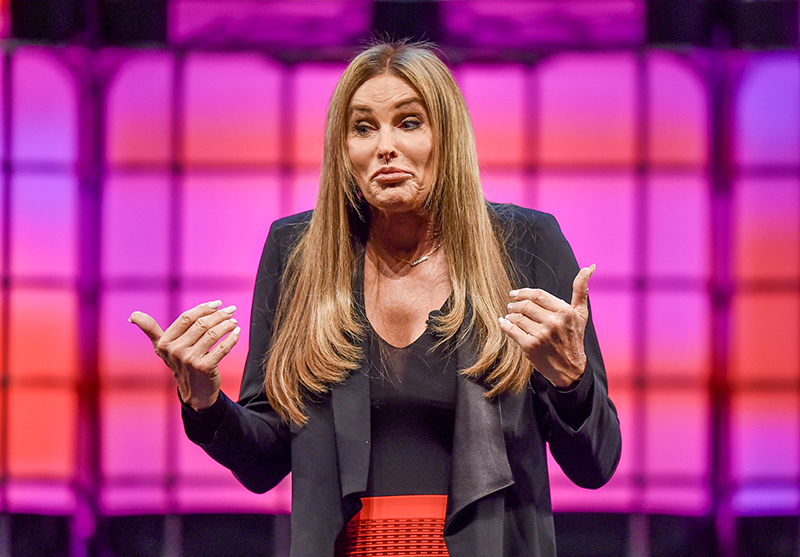Danica Roem Explains Why She’s Running for the Virginia Senate
Roem, who made history as the first trans state legislator in the United States, will run for a newly-created Senate district in 2023.

Virginia State Del. Danica Roem (D-Manassas), who made history as the first out transgender person elected to a state legislature in the country in 2017, announced on Monday that she will be running for an open seat in the Virginia Senate in 2023.
Roem’s entry into the race gives Democrats a candidate in a newly-redrawn, politically competitive district with no current incumbent in what promises to be a hard-fought race that could determine whether Republicans gain full control over the commonwealth’s government.
The Senate is currently divided 21-19, in favor of Democrats, who have, at time, exercised their power to keep the conservative House of Delegates and Republican Gov. Glenn Youngkin’s more controversial ideas at bay.
But in 2023, senators will be running in newly redrawn districts due to the decennial census. If Republicans win 20 of the 40 seats, all ties will be broken by Republican Lt. Gov. Winsome Sears, effectively handing them control of the Senate, and by extension, state government. If Democrats can win 21 seats, they will retain the majority.
Against that backdrop, Roem’s district — the 20th most-Democratic-leaning district in the 2021 gubernatorial election, in which Democrat Terry McAuliffe narrowly beat Youngkin by 3 points — could prove to be one of the two most important seats when it comes to determining whether Democrats will retain control of the upper chamber.
Roem’s entry into the Senate race is propelled by two factors. First, because there are no statewide offices up for re-election in 2023, the commonwealth’s Senate races effectively serve as the top of the ticket, making it necessary for Democrats to put forth a strong contender who can lead the ticket.
“We as a party need to put our best foot forward,” Roem told Metro Weekly about her decision to run.
“Given my track record of winning three elections, including flipping the seat of the self-described ‘chief homophobe’ who had been in office for 13 terms, or 26 years, I know how to win very competitive, very hard fought races,” she adds, referring to her 2017 unseating of longtime Del. Bob Marshall, whose name remains enshrined in Virginia’s constitution as the co-author of a voter-approved ban on same-sex marriage.
“At the same time, my record on constituent service is strong,” Roem says. “And the fact that 16 of my 18 existing precincts for the House of Delegates happen to be in that new Senate district, the only way for me to continue serving most of my existing constituents is to run for Senate, because my House of Delegates district is being carved into three different districts right now.”
Roem has already been endorsed by all four of the state senators — all Democrats — currently representing parts of Prince William County, as well as by the LGBTQ Victory Fund, which advocates for greater LGBTQ representation in public office.
“Since becoming the first out trans state legislator in U.S. history, Danica has proven herself a brilliant lawmaker, courageous advocate, and inspiring leader. Her voice in the Virginia House of Delegates has been critical for her constituents and transformative for our community,” Annise Parker, the president and CEO of LGBTQ Victory Fund, said in a statement. “Danica proves that despite the dark chapter we find ourselves in, there is much to look forward to. Her election will be a deafening rejection of the anti-trans rhetoric and attacks currently sweeping our country.”
The bulk of Roem’s current House district comprises a significant portion of the new 30th District, which includes western Prince William County, including swathes of what locals call the “Rural Crescent,” along with the cities of Manassas and Manassas Park. Prior to taking office, Roem, a former journalist, wrote more than 2,500 news stories about day-to-day issues that primarily affect western Prince William County as part of her work for the Gainesville Times and the Prince William Times, making her intimately familiar with the issues that her current constituents, and those in neighboring House districts that comprise parts of the 30th Senate District, are facing.
For Roem, constituent service is a key part of being a legislator. Even though two precincts — Signal Hill and Yates Ford — from her current House district are not in the 30th Senate district, she has already told constituents there to reach out to her as if she was their legislator, even if they can’t vote for her at election time.
“I know my constituents very well. My constituents know me well, especially as I’ve held more than 30 local town halls in the area. We’ve passed 32 of my bills into law, most of which my constituents asked me to carry in the first place, including 10 to feed hungry kids,” Roem says, touting her legislative accomplishments in Richmond.

As an example of her involvement in the community, Roem also cites work she has done with Settle the Debt, a Prince William-based nonprofit that raises money to end school lunch-shaming and help needy children in schools pay down their lunch debt. At the beginning of the COVID-19 pandemic, when schools switched to virtual or remote learning, Settle the Debt worked with Roem, Prince William County Schools, and other leaders to establish a meal program where families could pick up a lunch kit for their children that would ensure they still had access to nutritious meals.
Adelle Settle, the founder of Settle the Debt, called Roem a “tireless advocate” for hungry children in an interview with Metro Weekly, expressing gratitude for Roem’s legislative work on school meals and school lunch debt.
“Danica always makes sure to bring up feeding kids and making sure that that kids in schools have access to meals. This is something that she is deeply passionate about and she brings it up frequently and she engages with members across the aisle, of all kinds of political beliefs, because feeding kids is something that can and should be bipartisan,” says Settle. “It’s something that there shouldn’t just be a Democratic issue, It should be an everybody issue. Because everyone cares that our kids are fed, everyone cares that our kids succeed. We want to make sure that the state is as well prepared with great young people who are going to fill the jobs of tomorrow. And this is just one way that we can make sure that those kids get there with as little trauma and with as much help as possible.”
She also praises Roem and Roem’s legislative staff for being thorough and detail-oriented when it comes to resolving issues related to food insecurity.
“We saw a problem in 2017 and 2018, and we introduced this giant piece of legislation, and it was shot down,” Settle says, referring the House of Delegates, which, at the time, was controlled by Republicans. “But in that legislation, there were maybe 10 or 11 smaller action items that could be accomplished, each of which would have a positive impact on children and on families that are experiencing some level of food insecurity or poverty or even just those who are experiencing a gap in income, the loss of a job, or some kind of setback that has causes a financial struggle. She and her staff have worked diligently to make sure every aspect of that original legislation had now been signed into law.
“She calls me, she keeps me updated,” Settle says of her interactions with Roem. “I never feel like it’s hard to get a hold of her. If there’s something that we see that’s a problem, she’s just a phone call or a text message away, and she always jumps right on it. She’s a great candidate and is someone that is worth supporting because she really does support her constituents and she knows what her constituents really need to make sure that they and their families are successful and safe.”
Settle notes that she also began assisting families experiencing hardship on an individual basis, independently of Settle the Debt’s efforts, and that Roem was involved in some of those efforts
“It was an informal effort between me and a bunch of friends who are just really kind people. I would post on Facebook and say, ‘I’ve got a family who is in need of groceries,’ or gift cards, or delivery to their homes, or whatever. And my friends would just Venmo me and we would take care of it,” she says.

Roem remembers two particular families they helped: one family comprised of eight children and two adults in Bristow — which isn’t even in Roem’s House district — and another family of three in Gainesville, comprised of a mother with two children, including a 7-year-old cancer survivor.
“Adelle and I bought hundreds of dollars’ worth of groceries for that family, and the mom turned around and yelled to the kids, ‘Hey, kids, we’re eating tonight.’ That to me is the heart and soul of what constituent service is supposed to be,” says Roem. “And if someone takes issue with me being a trans woman performing that constituent service, well it turns out the trans woman from Manassas is actually pretty damn good at her job.”
Currently, only one other candidate, Republican Ian Lovejoy, a former Manassas city councilman, has filed to run in the 30th Senate District. Roem hopes to make the case to voters that her election, and, by extension, Democratic control over the Senate, will benefit their lives.
“To start with, if you’re one of my LGBTQ constituents, a Democratic State Senate is the only difference between you still having all of your civil rights versus having a number of them taken away from you and your kids, your LGBTQ kids. The Republicans tried to do that last year, and the Democratic Senate stopped that,” she notes. “If you enjoy voting early and having easy access to the polls, it was your Democratic State Senate that killed the bills from the Republicans to make it harder for you to cast your ballot. If you believe in protecting the environment — which is so important in the Rural Crescent, especially that part of Haymarket and Gainesville, in Broad Run, in Catharpin — you need to have a state legislator representing you who has 100% voting records from the Virginia chapters of both the Sierra Club and the League of Conservation Voters over a five-year period.
“The fact of the matter is, on this, I’ll put our Democratic Senate majority and I’ll put my personal record on the line and demonstrate that when it comes to constituent service, taking care of Western Prince William, Manassas and Manassas Park, Democrats are ones who are willing to be the party of responsible governing,” Roem adds.
She touts her support for “maintaining the integrity” of the Rural Crescent by opposing the Bi-County Parkway and passing legislation in 2020 to ban above-ground transmission lines along the I-66 corridor between Gainesville and Haymarket, in an effort to force the Prince William Board of Supervisors to reexamine their economic development priorities for the area. She also touts her ongoing fight for dedicated transportation funding, which puts her at odds with Republicans, including Gov. Youngkin, who have proposed cuts.
“How could you possibly sit in traffic in Northern Virginia at all and think that we have enough money for transportation funding right now?” Roem says. “It is absolutely tone deaf and ridiculous on their part. And I was the lead opponent to their plan for gutting more than half a billion dollars over the biennium from our transportation fund. It just simply will not happen under my watch. I won’t allow it.”
Noting that inflation and the cost of living are the top issues on voters’ minds, Roem encourages Democrats to focus on issues like ensuring children are receiving school meals, which allow them to focus on learning, and improving infrastructure in order to lure economic development to the area.
Roem also says she’s prepared for the inevitable attacks on her identity, which have been deployed by each of her opponents every time she’s run for office.
“I know it will happen. And the reason for that is that is, right now, part of the Republican policy agenda is singling out and stigmatizing trans kids, whom they’re supposed to be elected to serve. This is what they are doing nationwide right now, what they’re doing in Virginia right now,” she says. “There is no question in my mind that they are going to try to come after me with the same sort of stupid crap that they did in 2017 and even 2019 to 2021, only with a lot more money behind it. And when they do, they will find out that it will backfire mightily.”
Support Metro Weekly’s Journalism
These are challenging times for news organizations. And yet it’s crucial we stay active and provide vital resources and information to both our local readers and the world. So won’t you please take a moment and consider supporting Metro Weekly with a membership? For as little as $5 a month, you can help ensure Metro Weekly magazine and MetroWeekly.com remain free, viable resources as we provide the best, most diverse, culturally-resonant LGBTQ coverage in both the D.C. region and around the world. Memberships come with exclusive perks and discounts, your own personal digital delivery of each week’s magazine (and an archive), access to our Member's Lounge when it launches this fall, and exclusive members-only items like Metro Weekly Membership Mugs and Tote Bags! Check out all our membership levels here and please join us today!
























